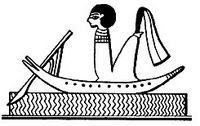Sex and religion need to be intimate bed partners
Psychological Perspectives publishes Rob Henderson's interview, “We Are Sexual Every Minute of Our Lives: An Interview with Thomas Moore" in Volume 58, Issue 2, 2015 titled The Environment: Inner and Outer. Unfortunately the full text is not available for free viewing. This interview may be purchased for $US 40. Read a preview of the first page and the Abstract that states:
“We Are Sexual Every Minute of Our Lives”:
An Interview with Thomas Moore
by Rob Henderson
Psychological Perspectives
Vol. 58, Iss. 2, 2015
Pages 172-188
Published online: 5 June 2015
"Thomas Moore is a proponent of bringing more soul into our sexual connections and our lives in general. In this interview, he speaks of the relationship between moralism as a defense against morality, the repression of sexuality, and the futility of trying to control it. An important topic discussed is shame and its association with sexuality, as well as different ways to look at masturbation. He explores Jesus's apparent view of sexuality as amplified from Biblical stories, and how the church and religion deal with sexuality. It is Moore's belief that one of our modern day tasks is to reconcile sexuality and spirituality and he gives some ideas about how this reconciliation can be achieved on a personal level."Psychological Perspectives: A Quarterly Journal of Jungian Thought is published by the C. G. Jung Institute of Los Angeles.
“We Are Sexual Every Minute of Our Lives”:
An Interview with Thomas Moore
by Rob Henderson
Psychological Perspectives
Vol. 58, Iss. 2, 2015
Pages 172-188
Published online: 5 June 2015














